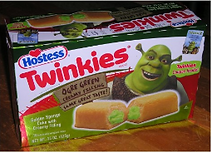
The Dieting Experience
Changing the conversation about weight loss and dieting
Dr. Laurie Patlin Suttenberg, DSW, LCSW-QS, DCSW
Willpower & Childhood
One of the very first TV characters recognized by generations of babies and toddlers is the precious and endearing Cookie Monster from Sesame Street. How interesting that the persona of this endearing character, known for his insatiable appetite for cookies, was designed and created for the targeted audience of our youngest TV viewers. This legendary muppet, with his complete and utter lack of willpower when it comes to cookies, is beloved in spite of, or perhaps because of, his whopping cookie obsession.
From the sunny days at Sesame Street, children move on to the Frog and Toad series of books. The following video tells the story of Frog and Toad attempting and failing to stop eating freshly baked cookies. They knowingly attribute their inability to stop eating those cookies to their lack of willpower, and every strategy they devise and attempt to overcome this inability is insufficient. In the following story, willpower failure is depicted as an all powerful force that is unstoppable, even in the face of total awareness.
Walter MischeI, a Stanford researcher, performed experiments in 1972 on delayed gratification with four and five year olds. His work came to be known as the Marshmallow Experiment. Watch the video below of a re-enactment of this famed experiment, doing so through the lens of willpower.
We watch as the childrens' struggle with willpower immediately begins. The tension is palpable as the children battle to refrain from eating one marshmallow in order to ultimately eat two. The children are tempted by the smell, the look and the feel of the marshmallow. They attempt to focus elsewhere, but the marshmallow is delectably tempting. Is touching the marshmallow a precursor of cheating? Will it count as eating if the marshmallow is merely licked? Though it is just minutes that the children must exercise willpower, this test proves too challenging for some.
What you have read and seen so far seems innocent enough. Who doesn’t love Cookie Monster, who doesn’t smile at the Frog and Toad story, and who doesn’t find the Marshmallow Experiment funny and lighthearted? All three of these have the struggles with willpower as the common denominator. But when we simultaneously examine the statistics of childhood obesity, we can only react with appropriate concern and alarm, and there is absolutely nothing to smile about. The below chart shows the rising numbers of obese youth, ages 2-19.

Messages about food and eating behaviors are directed at children from multiple sources. From an early age, children are catapulted into the mighty hands of Madison Avenue, as they are recognized by the advertising industry as the avid consumers they are. Cartoon characters are paired with food products in marketing campaigns, and, frequently, these food items are not the healthiest options for children.




Research informs us of the alarming effect of food advertising campaigns aimed at children. The researchers in a 2016 study concluded that the exposure to TV food advertising in a typical children's TV program had an "acute effect" on cued eating among preschool-age children. A CNN November 22, 2016 online article has the headline, "The 'Surprising' Way Food Ads Sway Preschoolers' Snacking Habits". It seems curious to me as to what is "surprising" about this.
The International Journal of Obesity also published a 2016 article about children aged 9-10 years. This article contends that "the food industry spends $1.79 billion in marketing primarily energy-dense, nutrient-poor food to US children under 11 years old" (p. 1). Given that food advertising is a major source of exposure to food cues, the study concludes that "the observed cued eating may have a substantial impact on children's dietary choices" (p.6).
There are, no doubt, many contributing causes to childhood obesity. In addition to the mediums I have mentioned above, role models, including parents and families, as well as friends, schools, and the community at large, strongly influence and impact young children in the areas of food perceptions, attitudes about food, relationships with food, and eating behaviors.
How is willpower a challenge for children?
Is the struggle with willpower one of the contributing causes of childhood obesity?
Are there other messages about willpower related to food that are being communicated to very young children?